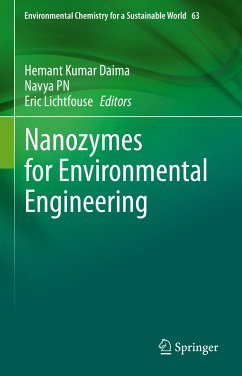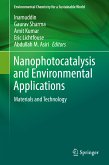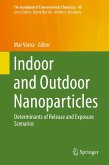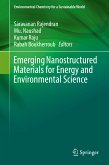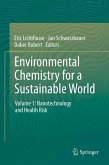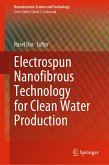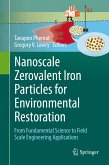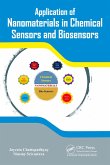Protection of the environment is essential because pollution has become a global problem with many adverse effects on life and ecosystems. For that, remediation strategies and techniques have been designed, yet they are limited. Here, the recent development of nanotechnology opens a new vista for environmental remediation. In particular, nanomaterials displaying enzyme-like activities, named 'nanozymes', appear very promising for environmental monitoring, contaminant detection, microbial management, and degradation of organic pollutants. Nanomaterials including metallic, metal oxides and carbon-based nanoparticles with nanozymes activities have been synthesized. These nanozymes have similar activities as natural peroxidase, oxidase, superoxide dismutase and catalase enzymes. Nanozymes have several advantages, yet they suffer from several limitations such as low catalytic efficiency, less substrate selectivity, biocompatibility, and lack of engineering of the active sites. This bookreviews the latest developments and applications of nanozymes in environmental science.
Dieser Download kann aus rechtlichen Gründen nur mit Rechnungsadresse in A, B, BG, CY, CZ, D, DK, EW, E, FIN, F, GR, HR, H, IRL, I, LT, L, LR, M, NL, PL, P, R, S, SLO, SK ausgeliefert werden.

